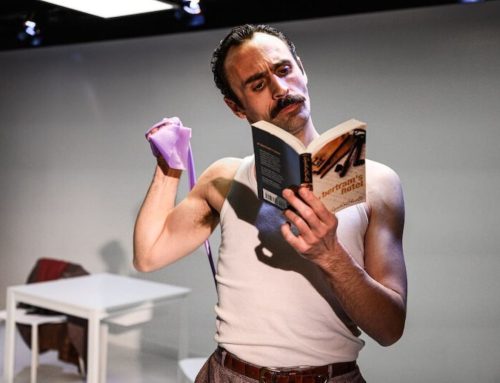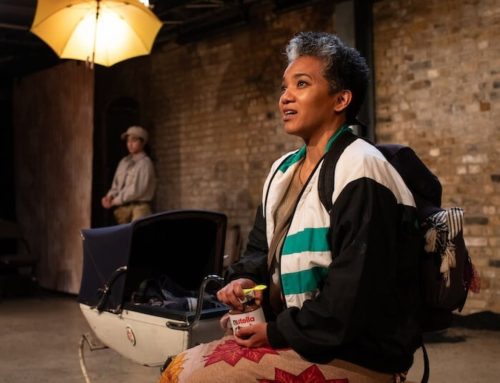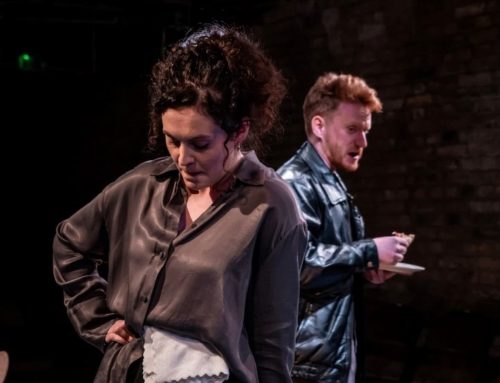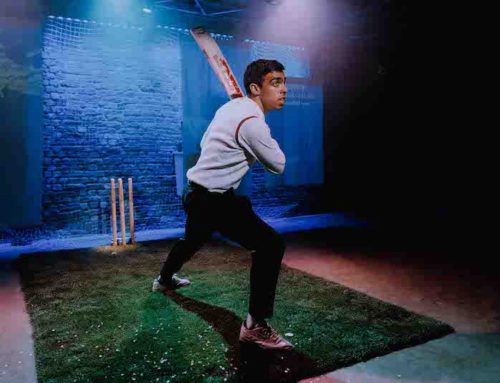Barney Norris’ biographical homage to his parents and grandparents has charm, but lacks momentum and tension, and feels strangely unfinished.
24 May 2022
Barney Norris’ ‘We Started to Sing’ reminded me a little of an old Morecambe and Wise joke (they were 1970s TV comedians for those of a younger generation).
Challenged by a professional conductor to play a classical piano sonata, the talentless Morecambe sits at the piano and bashes out a tuneless series of unconnected notes. “You played all the wrong notes,” says the conductor. “Not at all,” replies an affronted Morecambe, “I played all the right notes, but not necessarily in the right order.”
This came to mind because while Norris gets the sometimes-loving, sometimes fractious tone of family interactions spot-on in We Started to Sing, the narrative as a whole seems incoherent and incomplete.
The play opens in what I suppose is the 1980s. Youngish couple Dave and Fiona are settling into a new house (there is an awful lot of packing, unpacking, and house-moving in the play), accompanied by two infant sons and aided by Dave’s formidable parents, Bert and Peggy.
Bert, played with warm-hearted appeal by Robin Soans, is regaling the couple with interminable stories of his wartime navy service, much to the wincing irritation of Dave and the soft-hearted indulgence of daughter-in-law Fiona.
Peggy, in a lovely turn by the always watchable Barbara Flynn, chirps in here and there with a detail Bert has forgotten from his anecdotes. Her main concern, however, is to manoeuvre the subsequent conversation away from any mention of the young couple’s recent absence from Bert’s 70th birthday party.
Tonally the scene is, like much of the play, great at capturing the cadences and rhythms of family interactions and at expressing how families conspire to retain civility by ensuring some things remain unspoken. The problem is that nothing much really happens and that goes for the play too.
In subsequent acts in later decades, Norris variously explores the break-up of Dave and Fiona’s marriage; the tricky road grandparents have to play in negotiating relationships with their offspring’s ex; the parental challenges faced by divorced parents; and the challenges the middle-aged face in caring for elderly and decaying parents. It is in the main nicely observed, but there is not much in the way of a story or real conflict, and little dramatic tension.
There are other problems too. Norris inserts himself as writer into the dialogue at points, when he has his characters pause the action, stare into middle-distance, and ask, “What happened then?” As self-referential meta it feels out of place and gets in the way of what little action there is. Most annoyingly it poses a question that the writer then mostly chooses not to answer.
The whole production feels like it is all very personal for Norris. But for the rest of us, with no skin in the game, it can be unengaging. It is also, on occasion, so disjointed that I felt myself wondering whether the cast had missed out chunks of dialogue. The audience is sometimes left to fill in the gaps in the narrative without much inkling of where the writer is taking them.
Barbara Flynn and Robin Soans have the best scenes and the chemistry between them keeps the play on track. But I wonder whether the writer’s obvious desire to do justice to his family rather played second fiddle to the equally important need to keep the audience engaged.
Barney Norris Writer / Director
Frankie Bradshaw Costume and Set Design
Bethany Gupwell Lighting Designer
Cast
Peggy Barbara Flynn
Dave David Ricardo-Pearce
Fiona Naomi Petersen
Rob George Taylor
Bert Robin Soans
Duration: 2 hours 5 mins. One interval.
Full Disclosure: I paid full box-office price for the ticket.
More Recent Reviews
Playfight. Soho Theatre.
Writer Julia Grogan’s breathtakingly assured debut play arrives at Soho Theatre following stellar reviews at the Edinburgh Fringe and [...]
All The Happy Things. Soho Theatre.
Naomi Denny’s three-hander comedy-drama All The Happy Things covers familiar themes within a recognisable premise. A grieving protagonist comes [...]
Telly. Bread and Roses Theatre.
The challenge with absurdist comedy is that many people do not find it funny. Laughing at the sheer weirdness [...]





